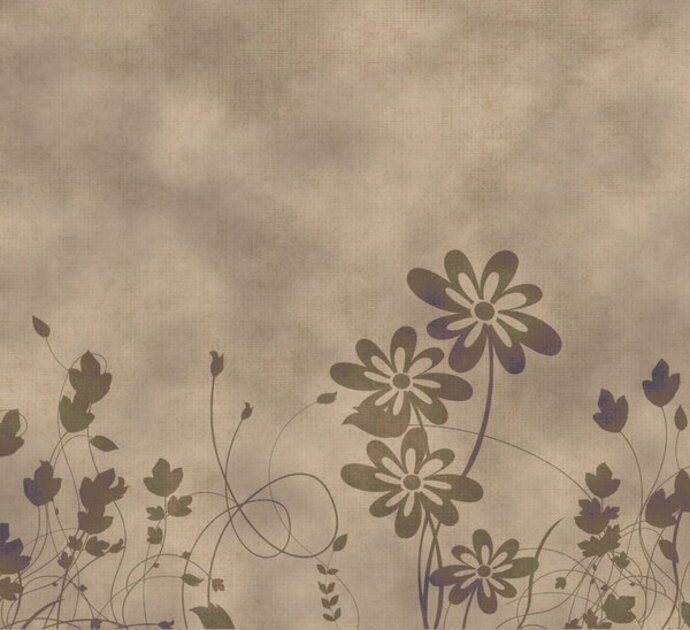
Our Gemara on Amud Alpeh describes how beautiful Miriam had become, as indicated by various secondary names given to her by scripture. One name was Esnan, which means gift. However, it also is reminiscent of the scriptural use of this word in the context of payment given to a prostitute for sexual services (See Devarim 23:19). In Miriam’s case, the sexual charge is not seen as negative, and to the contrary, she is seen as somehow an inspiration for enhanced romance between husband and wife, and not sin. The Gemara says, any man who saw her would be aroused to the extent that he would bring a gift to his wife, in order to invite her interest in a romantic manner.
Even though it is a subtle distinction, apparently there is a difference between certain types of beauty that arouse sinful lust, and other types of beauty that do inspire productive sexual connection. (See Agra Dekalkah Toldos 11 and Chaye Sarah 49 where he expands on this idea.)
The idea is that a fine line exists between becoming aroused by what one sees and engaging in hedonistic lust, versus becoming aroused about what one sees, and somehow channeling it appropriately. I will first discuss this idea psychologically and then reflect on some Jewish sources. It would seem, that there’s a certain type of beauty and sexuality that is not inviting promiscuity, but somehow is encouraging an appreciation of romantic love between husband and wife. Something about the way in which Miriam projected herself did not cause sinful lust, but created an inspiration for others to turn toward their spouses instead of her.
We find precedent for this idea in another incident, as related from Gemara Kesuvos (65a):
ææø¥æø¡æ æø¥ø¯æøçææˆø¯ææø¥ æø¥ø¯æøñæø¥ø¡æøçæ æøýæˆøñææ æø¯æÏøñæø¥øçææø¥ æø¥ø¯æ´ø¡æø¡æ, æøýæøñæ´ø¡æ æøçææø¥: æÊø¥ø¯æÀæø¿æÏ æøÇæ æø¯ææø¿æ øçæ! æÊø¥ø¯æÀøñæÏ æøñæø¥. æÊø¥ø¯æÀæø¿æÏ æøÇæ æøñæø¯æ´ø¡æ! æøýæøñæ´ æøçææø¥: æø¡æøñæÂø¯æ ø¡æ æø¥øçææø¥ æø¥ø¯æ øñæø¯æø¡æ øÇæ æø¥ø¯æø¡æ æøýæø¡æ æˋæø¡æˆøçæ æøñæø¯æ´ø¡æ. æøýæøñæ´ø¡æ æøçææø¥: æøñæø¥øçæ æø¥ø¯æø¡æ´ æø¥øñæøýæø¡æ æøñæˋæø¯æÏøçæ æøÇæ æø¥ø¯æˋææø¥æÊø¯æ´ø¡æøçæ æø¥øÇæ æøñææ. æø¥øñæøýæøçæ æø¥ø¯æÏø¡æ æøñæø¯æø¯æø¡æ æøçææø¥ æøÇææø¥øñæø¥øÇæ æø¥ø¯æ´ø¡æÂøñæø¥, æ ø¯æÊøñæ æ ø¯ææø¿æ´ø¡æ æø¥ø¯æøçæ æøÇææ ø¡æ.
The Gemara relates: Abaye’s wife, áÊoma, came before Rava after Abaye died, as Rava was the local judge. She said to him: Apportion sustenance for me, as I am entitled to be sustained by Abaye’s heirs. Rava apportioned sustenance for her. She subsequently said to him: Apportion wine for me as well. Rava said to her: I know that NaáËmani, i.e., Abaye, did not drink wine. Since you were not accustomed to drinking wine during your husband’s lifetime, you are not entitled to it after his death. She said to him: By the Master’s life, this is not correct. In fact, he would give me wine to drink in cups [shufrazei] as large as this. She gestured with her hands to show how large the cups were. While she was showing him the size of the cups, her arm became uncovered, and she was so beautiful that it was as though a light had shined in the courtroom.
æÏø¡æ æ´ø¡æø¡æ, æÂø¡æ æø¯æøçææˆøçææø¥ æˆø¥øñæø¯æÂøñæø¥ æø¯æøñæˆ æ´øñæ æøÇæÀø¯æø¥ø¡æ.
Rava arose, went home, and requested intimacy from his wife.
Apparently there are moments in time where it is most important to work with one’s desires productively and positively, than simply resisting then as enticements of the Yetzer Hara.
Ohr HaChayyim (Bereishis 26:18) has difficulty with an interlude that implies that Yitschok was intimate with his wife during the daytime, which is usually considered immodest. The verse states:
æøñæø¯æøÇøæ æø¥øÇøÈæ æø¡ø§æ´ø¯ææø¥øƒæøËæø¿ æˋæø¡æø æøñæø¥ø¡æøÇøææ æøñæø¥øñæˋæø¯æÏøçøæÈ æøýæøÇææøÑøæøÑæø¯ø æøÑøÈæøÑæø¯ æÊø¥ø¯æøÇæˋæø¯æˆø¥øÇøææ æø¥ø¯æÂøñøæ æøñø§æøñæø¥øæø¿æ æøñæø¥øñøæ´ø¯æ æø¯æøÇæ ø¥øçøÊæ æøÇæÎø¯æø¡æÏø æø¯æÎøñæøçøæÏ æøçøæˆ æ´øÇæø¯æÏø¡øËæ æøÇæˋæø¯æˆø¥ø§æø¿æ
When some time had passed, Abimelech king of the Philistines, looking out of the window, saw Isaac delighting with his wife Rivkah.
Ohr HaChayyim comments:
ææÎææÏ ææˆ æ´ææÏæ. æÊæ' ææÂæˋæ ææææ ææ æÂæˋææˆ æææ æææˋ æææˋæˆæ æææææ´æ æææææ´ (æ"æ´ æÊæÀ"æ) ææÎææÏ ææˋææˋ æææˆæ ææææ æˋæææ ææææ ææææ´æææ æˋæææˆæ´ ææÊæ' ææææ æææ æˋæˆæææ´ ææ´æÊæææ ææææ æˋææˆæ æ´ææ"æ (æææææˆ ææÂææˆ æÊ' æ') ææ æææÂæˋæ æˋææææ ææˋ"æ (ææˆææææˆ æÀæ) ææææˆææ æææææ æææææˆ æææ' ææææ æ´ææ æææ' ææ ææÎæææÏææ ææææˋæ æææææ æææææ ææææÂææ´ æææ æææˋææ ææ:
He indulged in the kind of affectionate behavior customary between man and his wife. If we are to accept the interpretation of Bereishis Rabbah 64:5 that this affection was actual sexuality, we must assume that this took place under circumstances when marital intercourse is permitted even during the day, such as for therapeutic purposes (compare Maimonides Hilchos Deos ch. 4, or the example quoted in Kesuvos 65a about the widow of Abbaye who inadvertently caused Rava to become aroused so that he had to go home in the middle of the day in order to have marital relations with his wife). The righteous endeavor not even to commit the semblance of an unbecoming act.
Ben Yehoyada explains Rava’s behavior in more lofty and less earthy terms, but we do see from Ohr HaChayyim this important idea: You cannot always fight the Yetzer Hara Directly. Perhaps this is the meaning of the adage from the Gemara Sotah 47a):
æˆø¥øñæ ø¯æø¡æ æ´øñæø¥øÇæ æˋæøÇæø¯æÂæø¿æ æø¥øÑæ æøÑæø¯æÂø¡æø¡æ´ ææø¿æøçæ´ æøçæÎøÑæ´ æˆø¥øÇææ æø¿æÏ æø¯æøÇæˋø¥æø¡æ æˆø¥ø¯æøçæ æˋæø¯æø¿ææ æø¥æø¿æø¡æ æø¯æø¡æøÇææ æø¯æÏø¡æ´øÑæøÑæˆ
It is taught in a baraisa that Rabbi Shimon ben Elazar says: With regard to the evil inclination, to a child, and to a woman, the left hand should reject and the right hand should welcome.
I believe that these three archetypes, feminine instincts, a child’s unmoderated desires, and the pull of the Evil Inclination represent emotional forces that allow for success and harmony when they are not resisted via frontal attack. Instead, they need to be respected and worked with in a collaborative and calm manner.

 Previous
Previous
